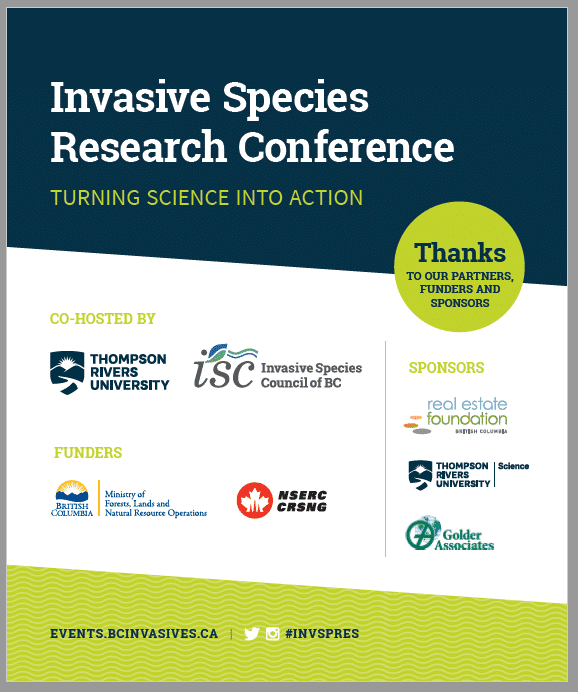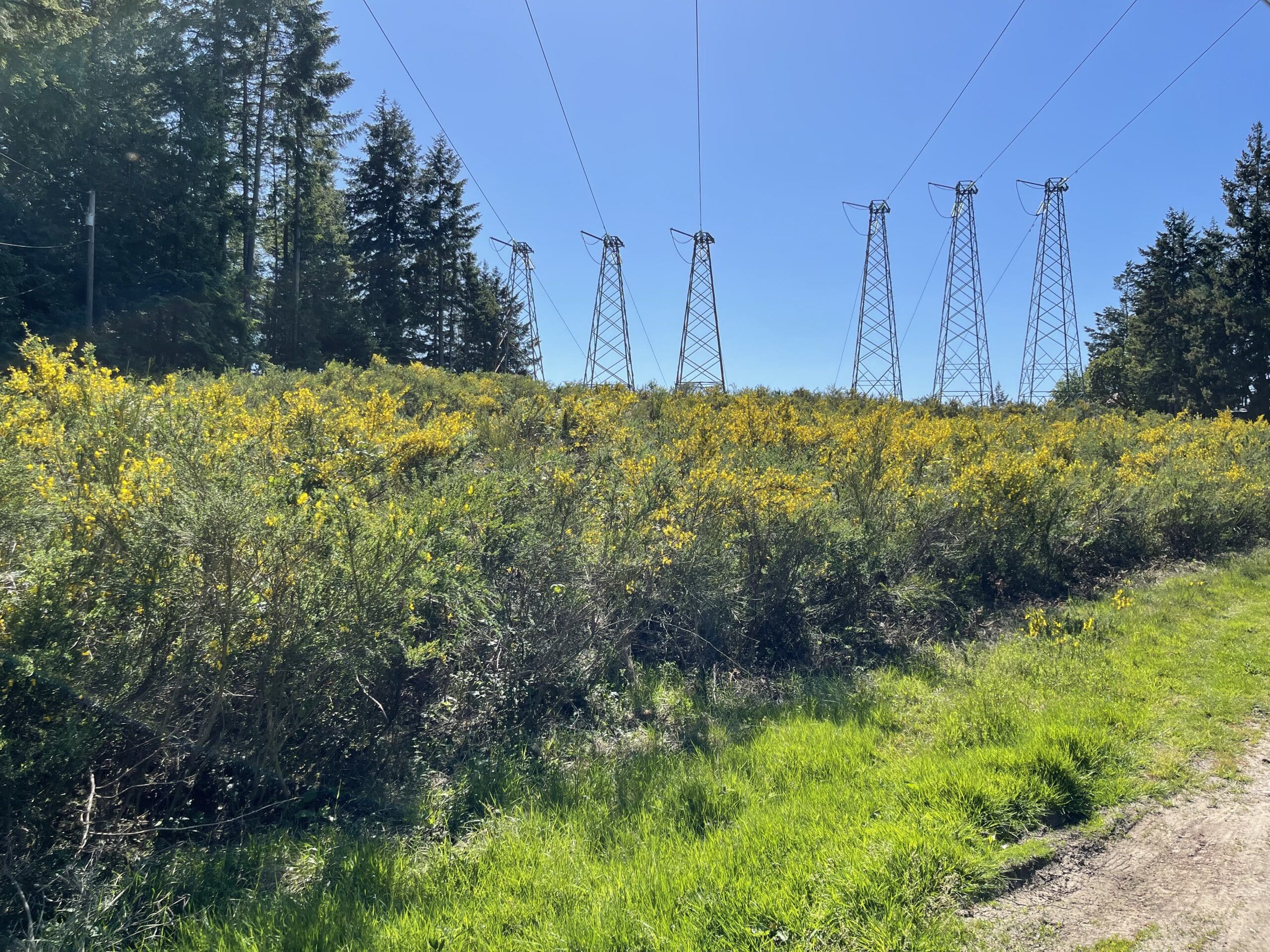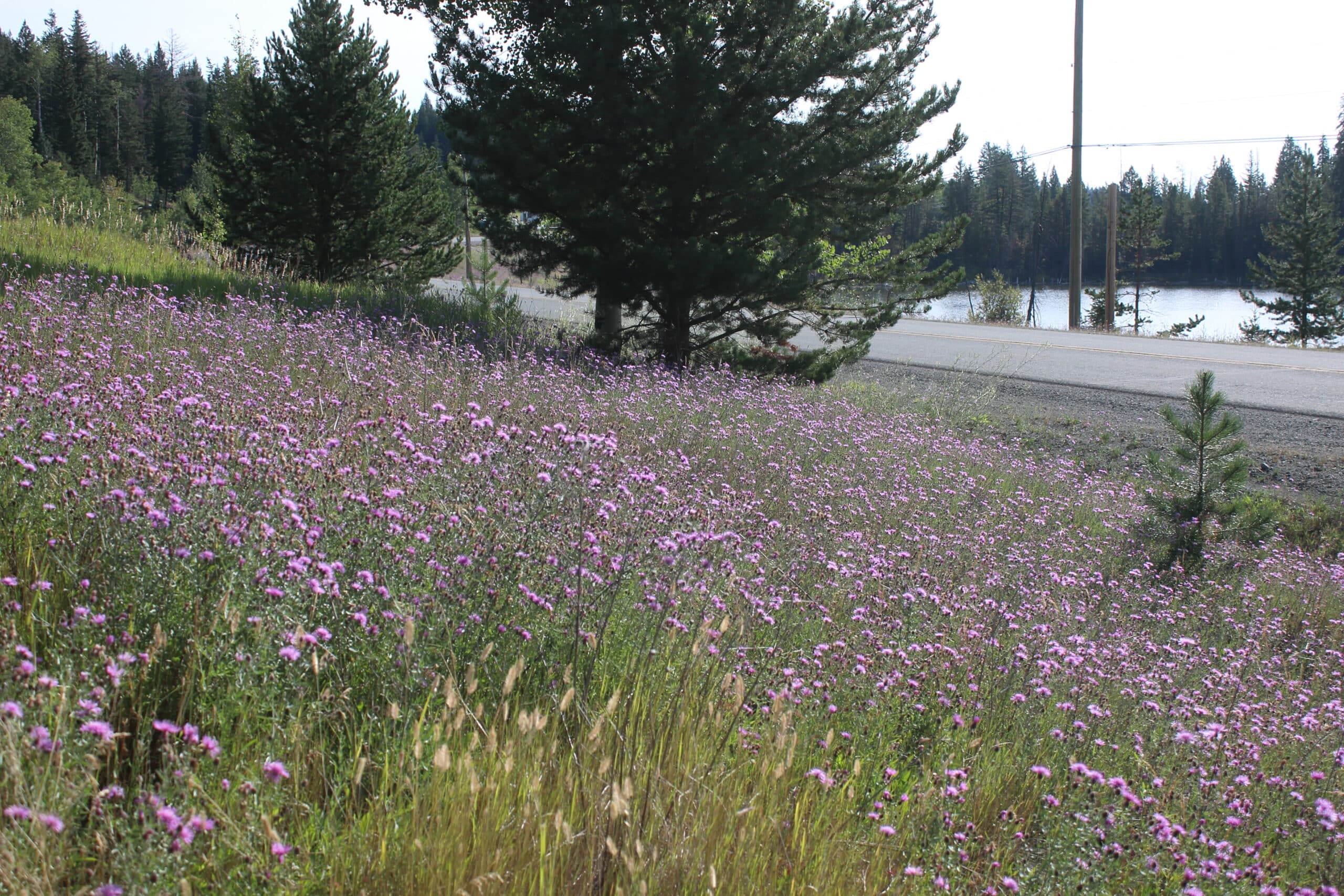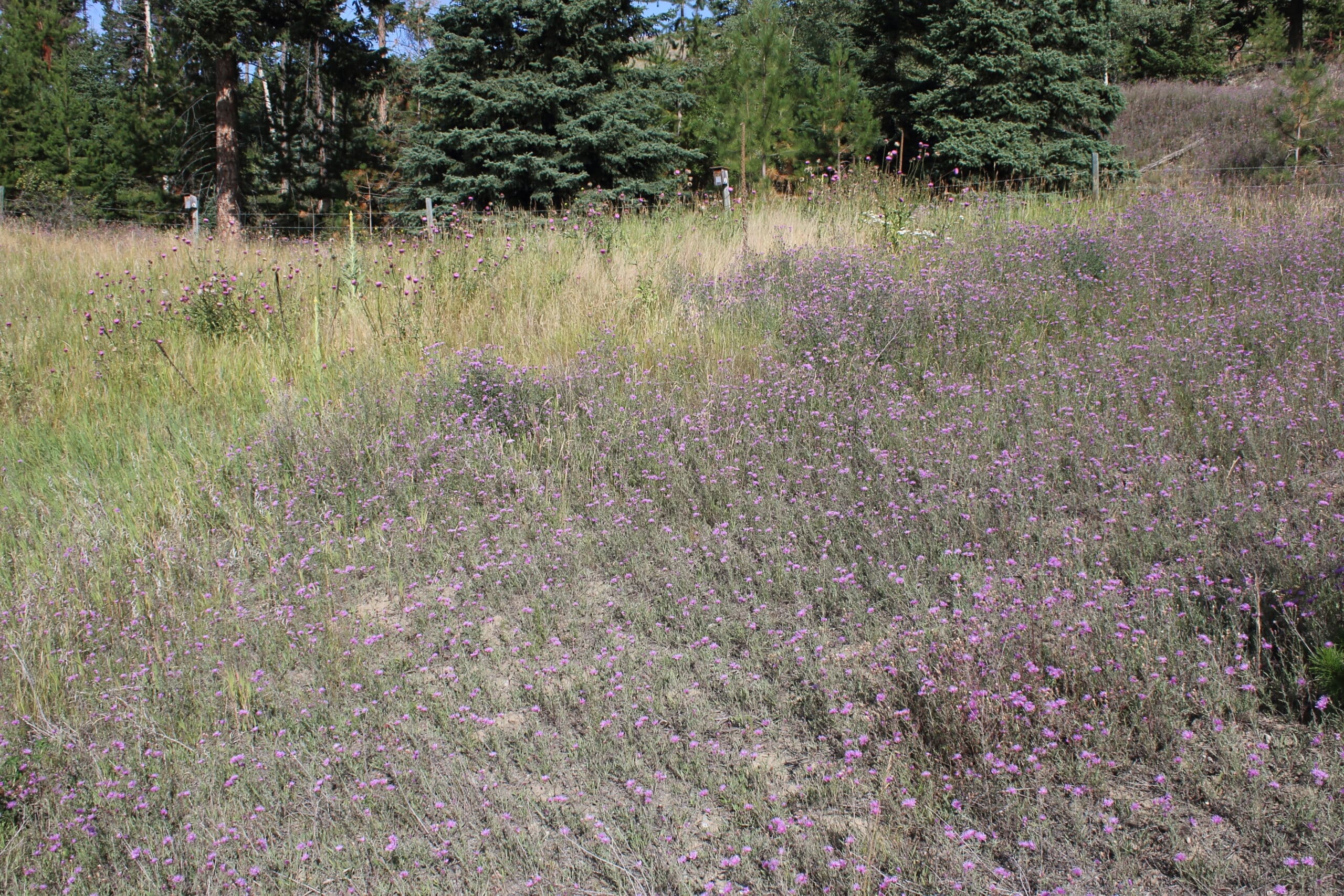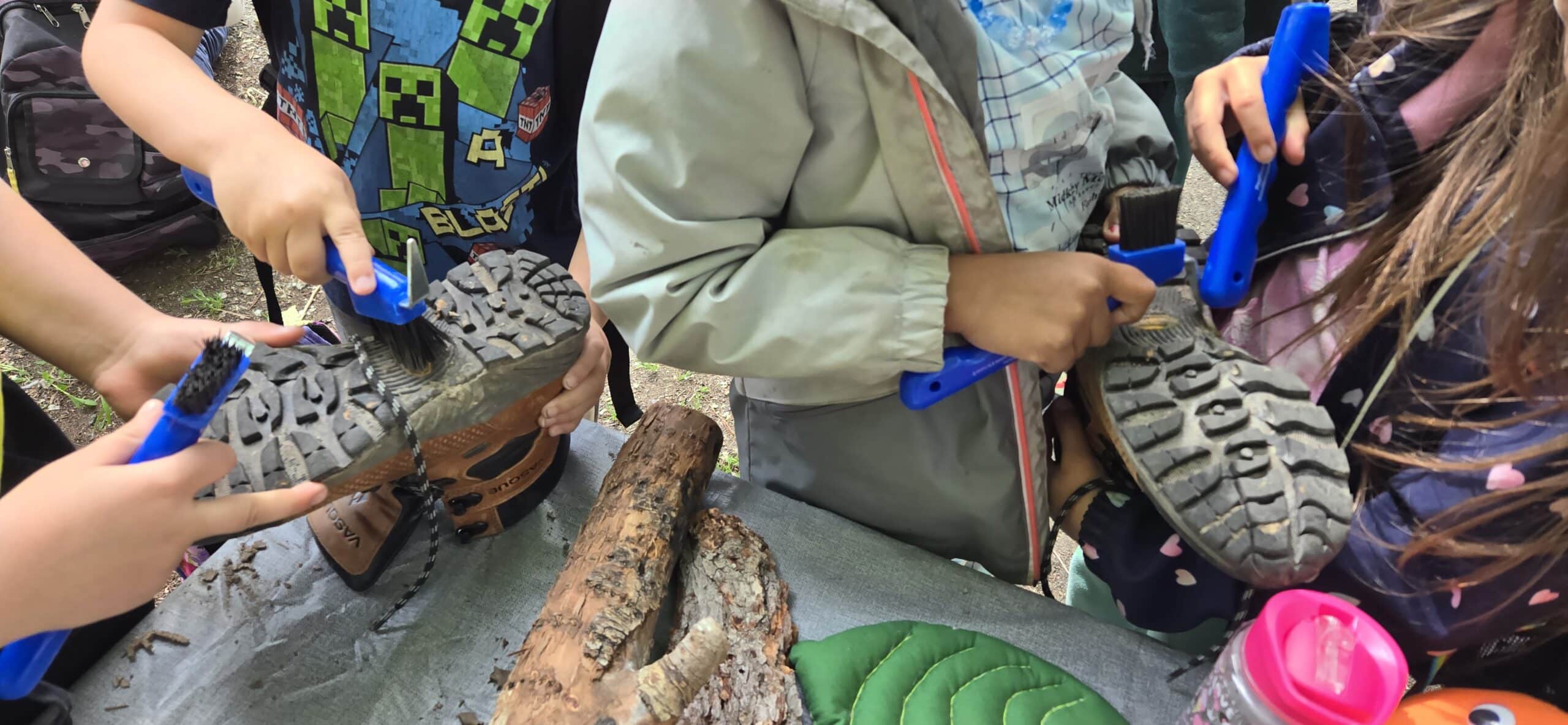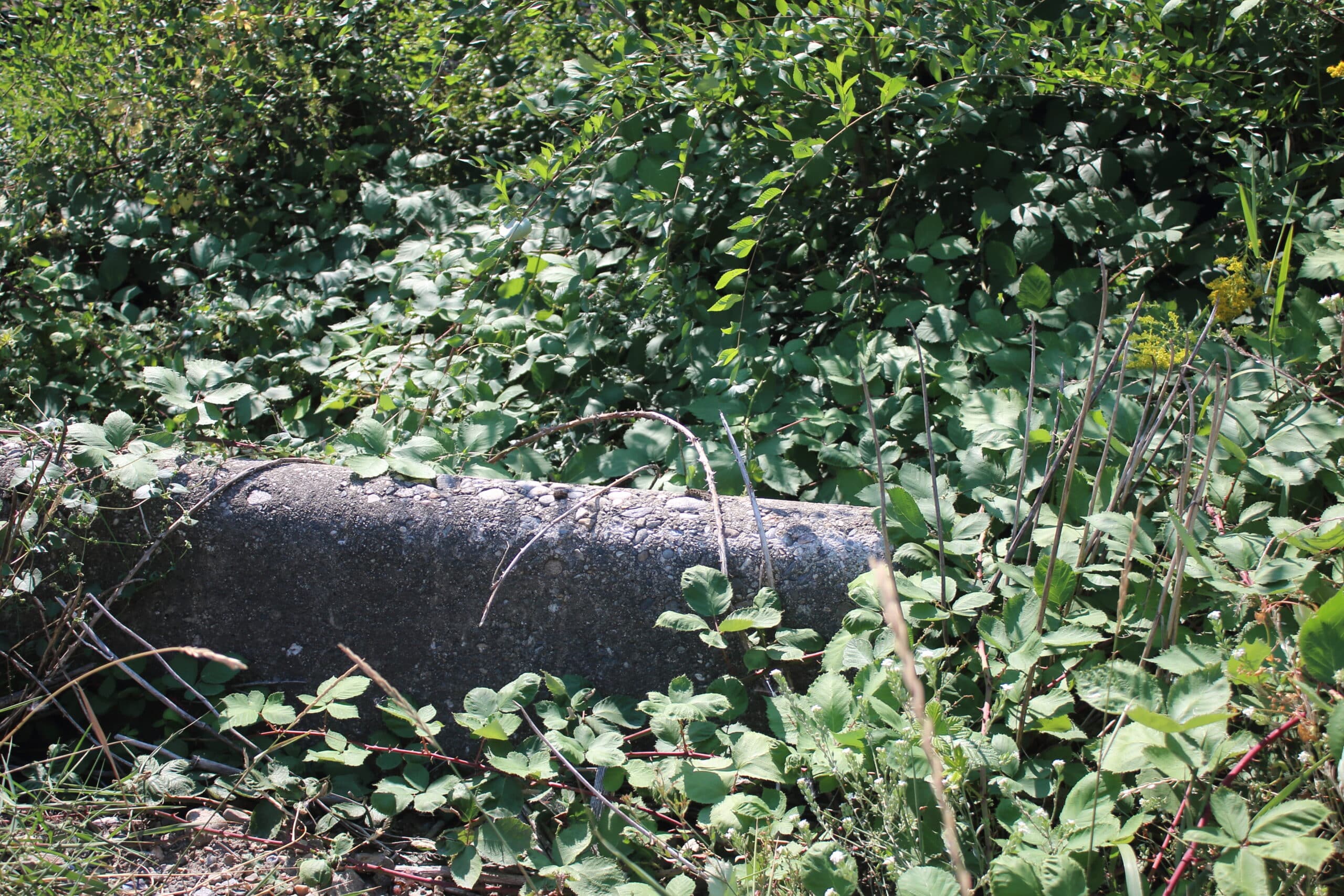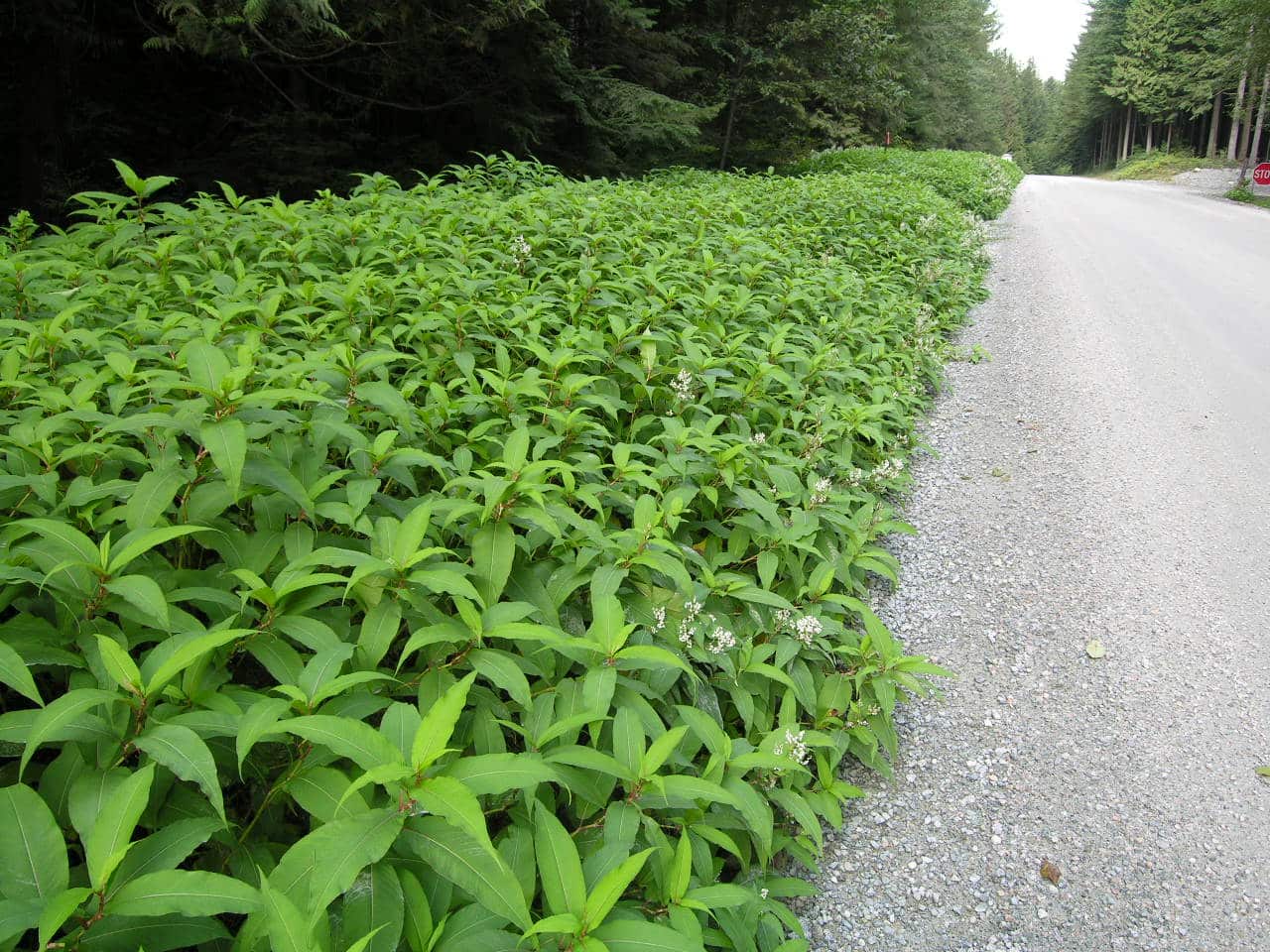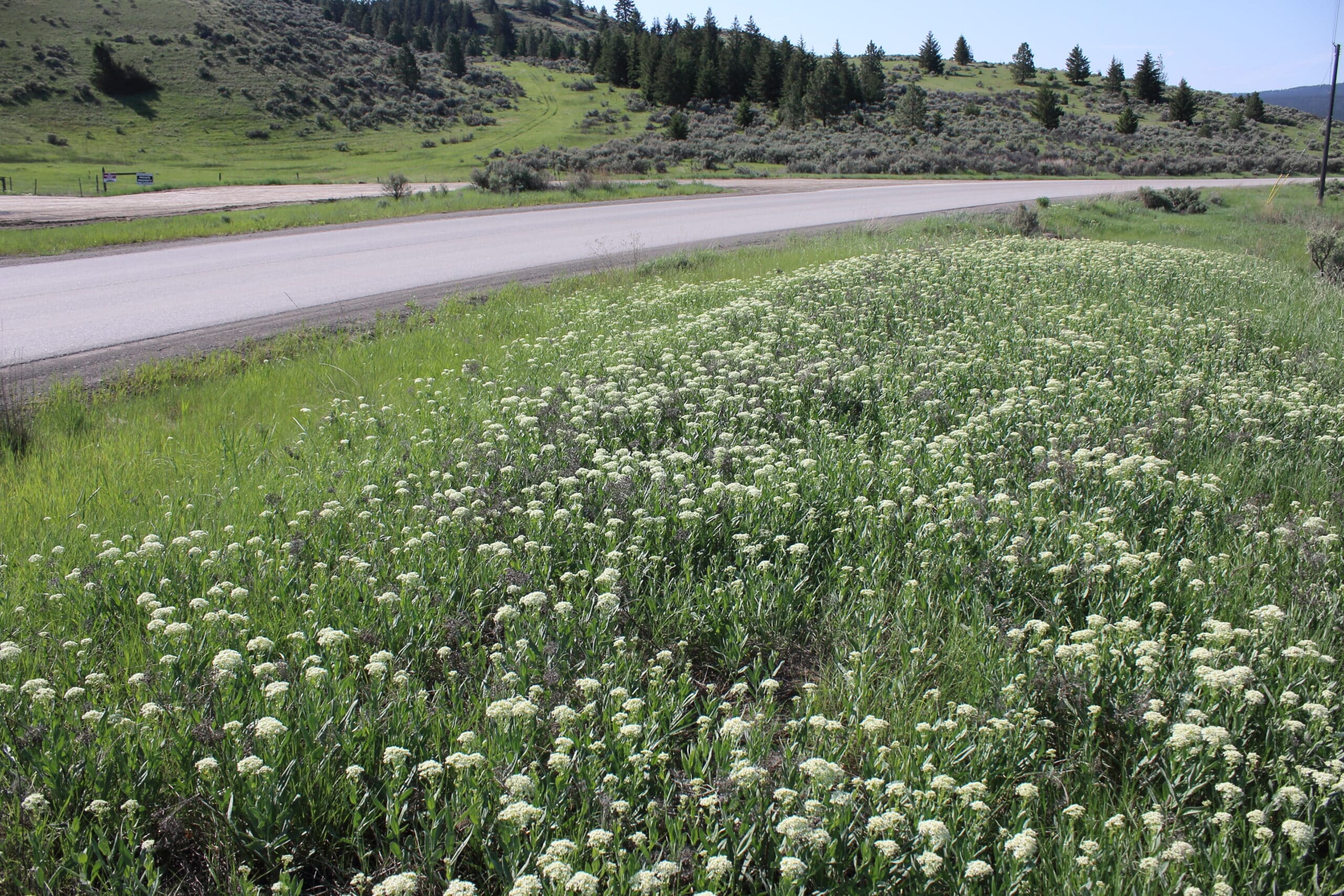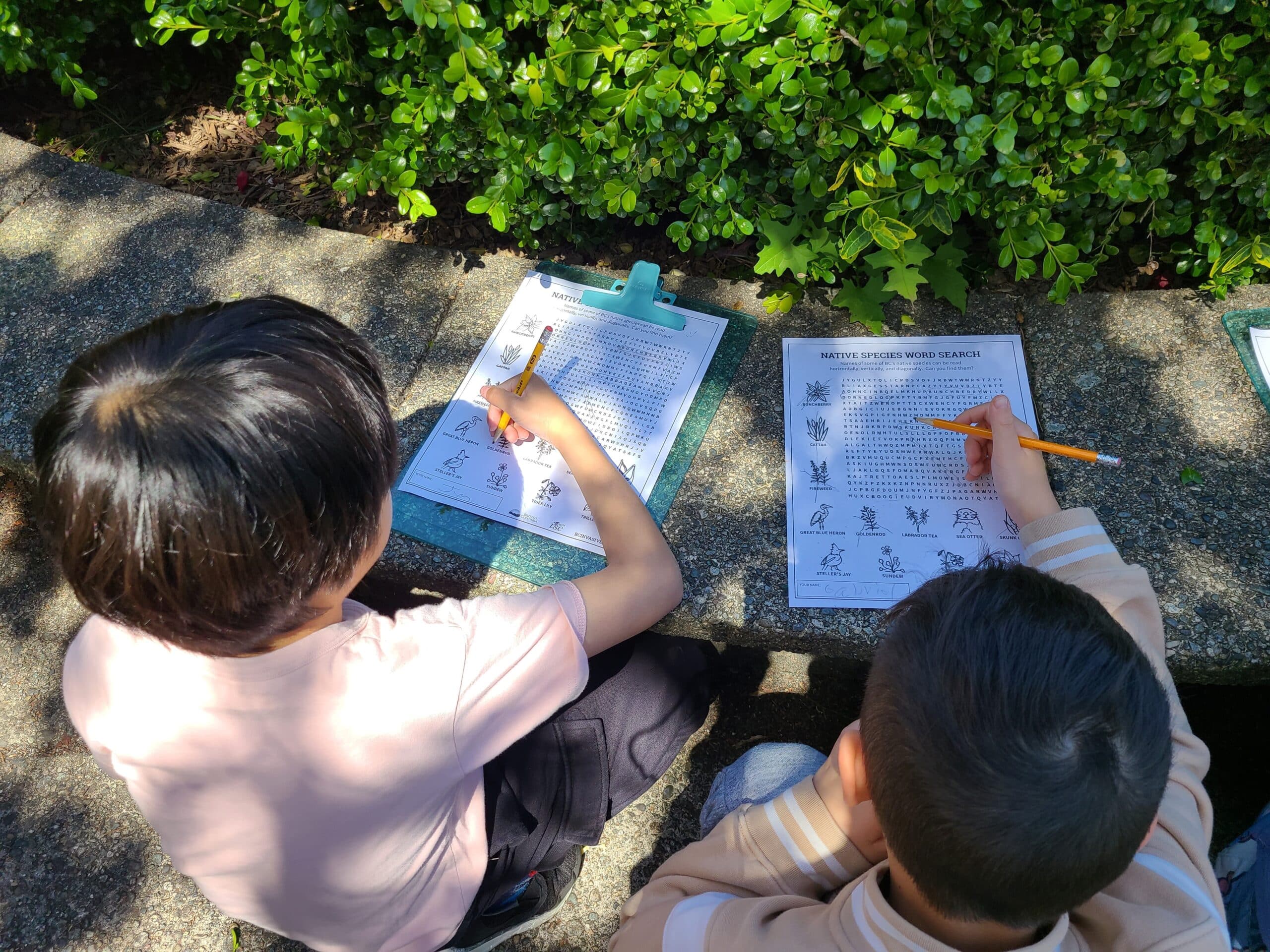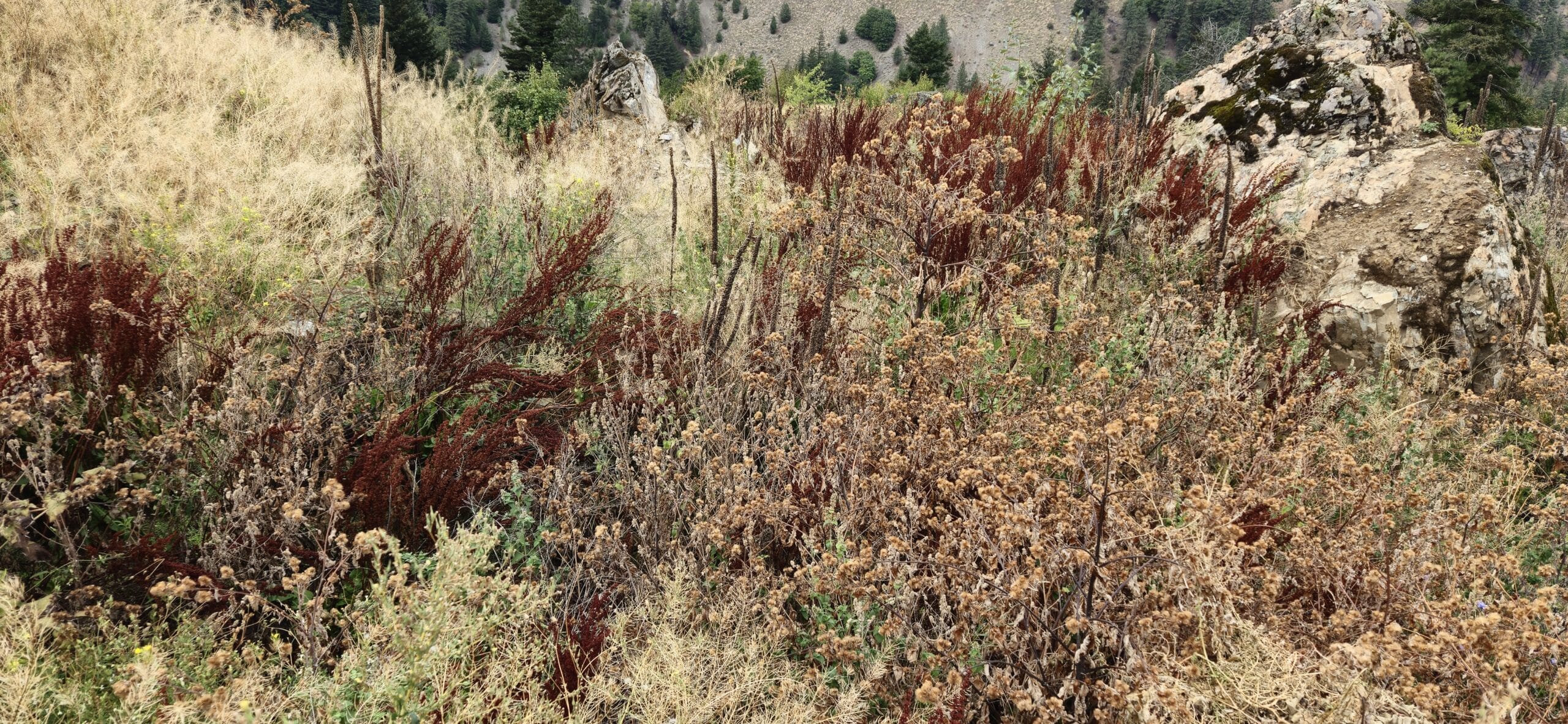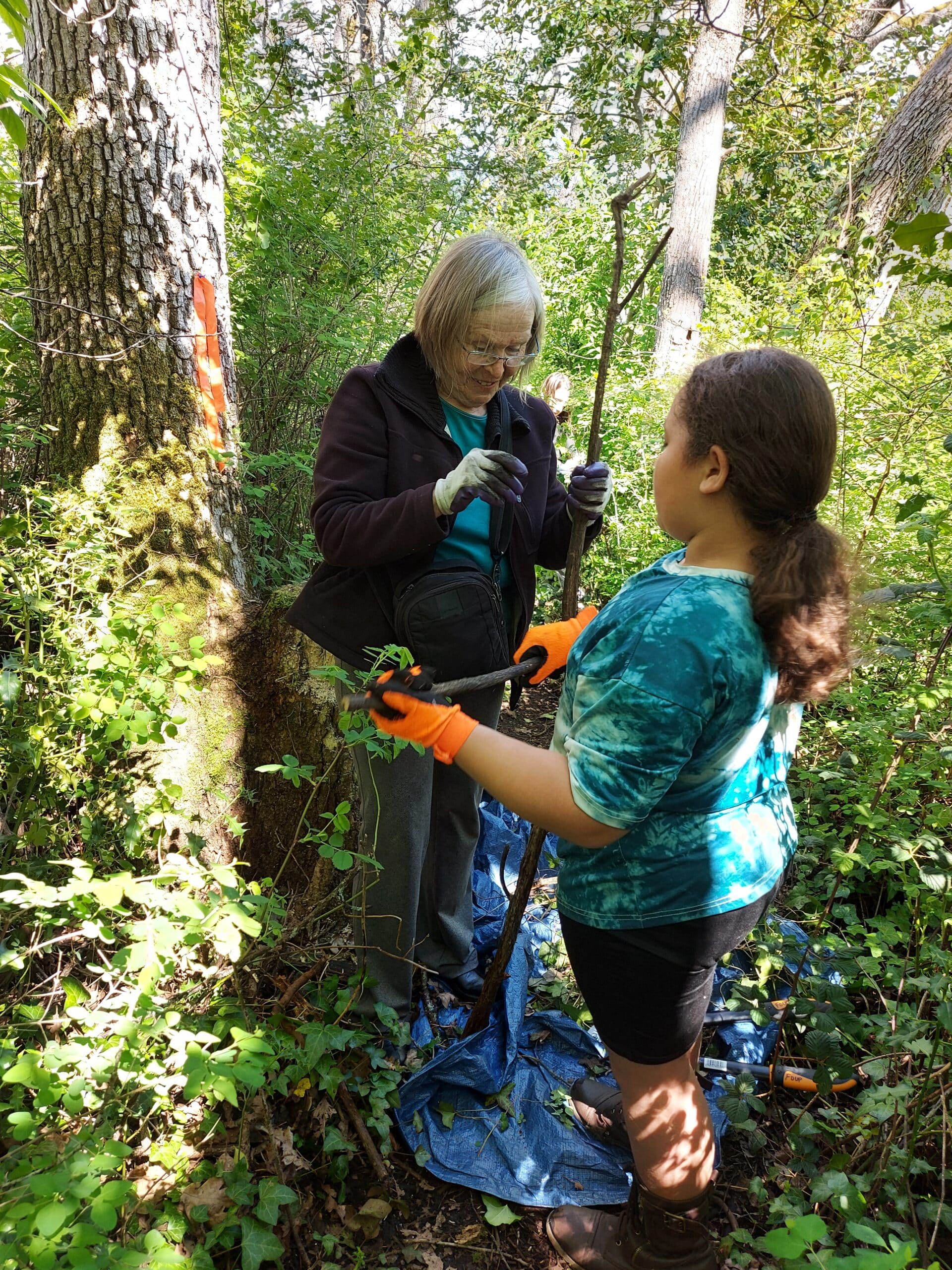Oct 6-7, 2021
2021 Invasive Species Research Conference – Turning Science into ActionThe Invasive Species Council of BC is pleased to host the 2021 Invasive Species Research Conference–Turning Science into Action, October 6-7, 2021.
The 2021 Invasive Species Research Conference took place virtually in an online event portal. Attendees learned about current and published research from 40 presenters in a variety of themed sessions. The event facilitated connections between invasive species researchers and practitioners in the Pacific Northwest.
Conference Background
The Invasive Species Council of BC convened the first Invasive Plant Research Conference in 2011. The Research Conference was deemed successful for both academic researchers and practitioners by linking science with operations. Based on the 2011 Research Conference, the BC Research Road Map was created to identify the future needs and priorities for invasive plant research relevant to BC.
To build upon this work, Thompson Rivers University (TRU) and the Invasive Species Council of BC co-hosted the 2017 Invasive Species Research Conference which took place June 20-22, 2017 in Kamloops, BC.
The 2021 Invasive Species Research Conference takes place virtually, over two half days, October 6-7, 2021.
Conference Program
The program includes two keynote speakers, a series of concurrent themed oral presentation sessions, a workshop, poster sessions and plenty of networking opportunities. Recordings of all presentations will be accessible by attendees following the Conference.
Who Should Attend
Invasive species researchers and practitioners from North America and beyond are invited to participate and to submit scientific research abstracts for presentations at the Invasive Species Research Conference. All those working or interested in invasive species research are encouraged to attend.
Timelines
- Call for Abstracts open: April 15-June 30, 2021 (extended deadline)
- Registration opens with early bird rates: by June 15, 2021
- Abstract review period: July 1-21, 2021
- Presenters confirmed: July 21-31, 2021
- Early bird rates end: August 15, 2021
- Live Conference: October 6-7, 2021
- Access to recordings: October 8, 2021-April 14, 2022
Get Social
Follow and interact with the Invasive Species Research Conference on social media using the hashtag #InvSpRes.
Abstracts were invited for oral and poster presentations from April 15-June 30. Abstracts were required to meet the following criteria:
- Title: Submit the title exactly as it will appear in the program.
- Authors: list additional authors, including affiliation, in the “Co-Authors” fields.
- Body of abstract: Body of abstract should not exceed 300 words, be a single paragraph and provide a brief description of the project, methods, results, and conclusions as appropriate to the topic.
- Names of organisms: All organisms must be listed first by their common name with scientific names in parentheses. Subsequent references can be by common name.
- Names and application rates of pesticides: When referring to pesticides, initial reference should be to their active ingredients (e.g., in Herbicide Handbook, Weed Science Society of America). Trade names can be used subsequently. Rates and units of measurement should be clear.
- Numbers and units: Use either Imperial or metric units, but do not mix them.
- Biographical sketch: Please provide a brief biographical sketch (bio) 200 words or less that outlines the presenter’s expertise relative to the presentation. Bios will be provided to conference attendees.
- Photo: When submitting an abstract please be prepared to provide a suitable photograph of the submitting author for use in the conference program and website. Size of photo is recommended to be at least 200 KB (to be print quality).
- Submission deadline: June 30, 2021.
Authors of accepted abstracts are responsible for registration fees (see below).
Guidelines for Presentations
All presenters are required to attend a virtual orientation and test-drive of the event platform in advance of the Conference.
Oral Presentations
- Oral presentation length may range from 10 to 20 minutes long with additional time for questions and answers unless otherwise instructed by conference organizers.
- Upon acceptance of abstracts, authors will be notified of the exact duration of their presentation.
- Presenters may be invited to participate in a panel as part of their themed session.
- Presenters will be expected to display their slides by sharing their screen and, for back-up, presenters will be instructed on how to submit their presentation files to the organizer before the Conference.
- Font size on slide decks must not be not less than 20 where possible.
- Presentation files will not be shared without author permission.
Poster Presentations
- Posters will be on display during the Conference day one and day two.
- A dedicated Poster Session will be held and authors are expected to be in virtual attendance at their posters during this session to “stand by their poster”, discuss the content and answer any questions.
- Poster dimensions are flexible as they will be presented virtually using screen sharing.
Support
- All presenters including of posters will have the opportunity to practice in the virtual event portal in advance of the Conference.
- Event staff will be ready to assist and troubleshoot during the event.
Contact
For questions on abstract submission or presentation guidelines: Contact Nick at projects@bcinvasives.ca.
Follow and interact with the Invasive Species Research Conference on social media using the hashtag #InvSpRes.
The Invasive Species Research Conference will feature 40 presenters including two keynote speakers.
Keynote Speakers
Dr. Laura Meyerson
Our day one keynote address, Global trends in invasions and strategies to manage them, will be presented by Dr. Laura Meyerson, University of Rhode Island.
Abstract
Transport and trade increasingly interconnect human communities facilitating evermore accidental and intentional species introductions. A warming global climate and the rapid movement of vessels across the globe have opened new air and sea routes, accelerated propagule pressure, and have altered disturbance regimes, all of which act synergistically to trigger and sustain invasions. Approximately 1.5 new alien species establish daily somewhere, but even that is likely an underestimate given that data quality on alien species distributions is uneven.
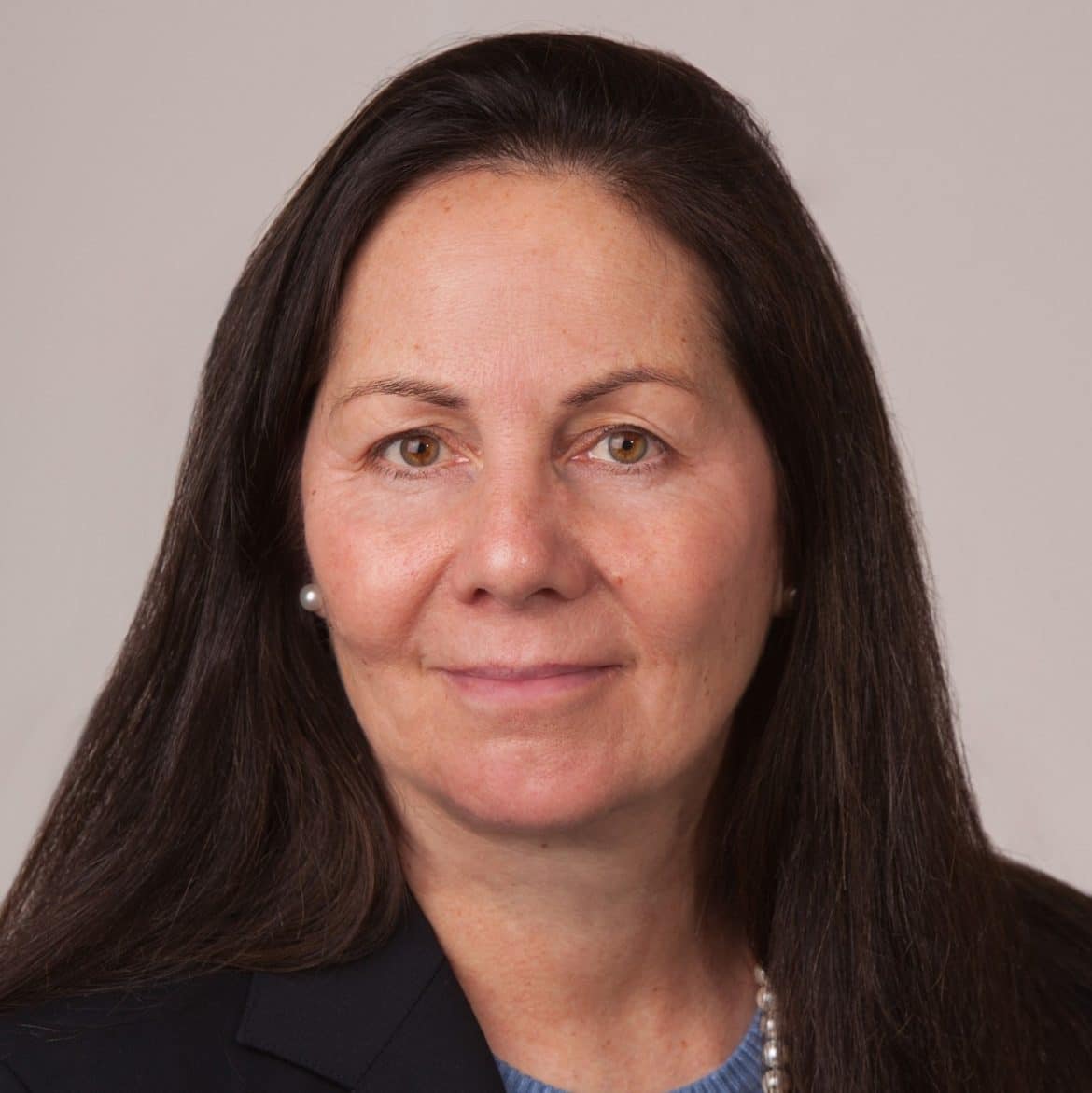
Some regions appear to be more invaded than others and possibly represent the true distribution of alien species in some places, but elsewhere low research effort or inadequate resources leave data gaps that obscure true global patterns. Similarly, the interconnectedness of invasions with commerce, culture, and human disturbance makes global scale management of invasive species particularly challenging. Large gaps between science, management, and policy across geopolitical scales have created an urgent need for integrative approaches across nations and stakeholder groups to fill those gaps. An evidence-based global strategy is needed to predict, prevent, and manage invasive species to reduce the impacts of invasions on biodiversity and human well-being.
Bio
Dr. Laura Meyerson is a Professor at the University of Rhode Island and Director of the Restoration Ecology minor and the Environmental Science minor. She is the Associate Editor-in-Chief for Biological Invasions and an Associate Editor for Neobiota. She is an international Science advisor for the Center for Invasion Biology, Stellenbosch University in South Africa, and is currently leading a chapter on trends in biological invasions for the forthcoming Intergovernmental Science Policy Platform on Biodiversity and Ecosystem Services report on invasive species. As a post-doc, Dr. Meyerson was an American Association for the Advancement of Science Fellow with the US Environmental Protection Agency and National Invasive Species Council working on biosecurity, and a research scientist at the Smithsonian where she worked with the Global Invasive Species Program on two global assessments for the Convention on Biological Diversity. Dr. Meyerson earned her doctorate in 2000 from Yale University, School of Forestry and Environmental Studies.
Dr. Cascade Sorte
Our day two keynote address, Predicting impacts of species invasions under climate change, will be presented by Dr. Cascade Sorte, University of California, Irvine.
Abstract
Climate change and species invasions are two of the greatest threats to global biodiversity. Furthermore, these threats may interact, with climate change influencing the rate and impacts of species invasions. There is a critical need to understand and predict invasion impacts in order to prioritize species and ecosystems for conservation and management. In this talk, Cascade will describe frameworks for anticipating invasive impacts, particularly in light of alterations in impacts under climate change.

She will focus on two “types” of invasions: first, invasions of introduced, non-native species and second, the influx of native species shifting their ranges under climate change (sometimes called “climate invasions”). Frameworks and risk assessments developed by invasion biologists are tools that could help us to anticipate impacts of these “climate invasions”. Their results to date provide initial validation of these tools, which could be used to develop plans for proactively managing non-native species and climate invasions.
Bio
Dr. Cascade Sorte is an Associate Professor in the Department of Ecology and Evolutionary Biology at the University of California, Irvine. As an integrative biologist, her work spans scales from organismal physiology to biogeography and is focused on understanding and predicting the impacts of global change. In particular, she studies climate change, species invasions, and the interactions between these two threats to global biodiversity. Dr. Sorte is an Early Career Fellow of the Ecological Society of America (ESA) and recent co-recipient of ESA’s Mercer Award, given annually to an outstanding paper in ecology by early career researchers, for a paper describing the relationship between the abundance and impact of invasive species. Prior to joining the faculty at UCI, Dr. Sorte completed her Master’s at UC-Santa Barbara, Ph.D. at UC-Davis, and postdoctoral training at University of Massachusetts, Boston.
Post-Event Registration Rates Now Available
Post-event access provides you with access to the event portal and recordings of all presenters from both days of the 2021 Invasive Species Research Conference. The portal will be accessible until October 5, 2022. As a member you save $40 on this ticket.
Non-member $100
Member $60
Prices are in Canadian dollars and are exclusive of GST at 5%.
Many thanks to all our sponsors and funders who are making the 2021 Invasive Species Research Conference possible!
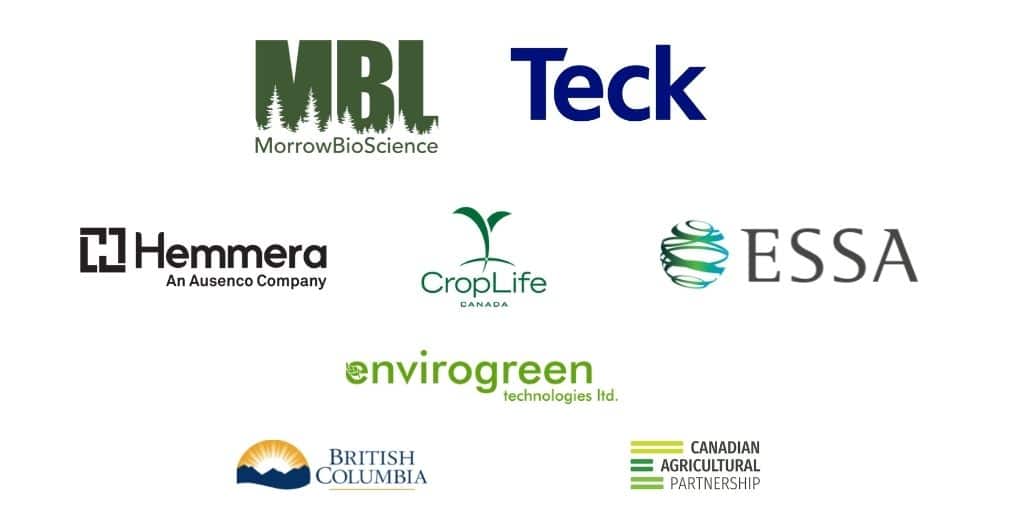
Promote your organization to an engaged audience and demonstrate your commitment to healthy landscapes and communities free of invasive species as a sponsor of the 2021 Invasive Species Research Conference-Turning Science into Action!
Contact Lindsay (development@bcinvasives.ca) at ISCBC to learn more or to confirm your commitment.
Thank you to all sponsors of the 2017 Invasive Species Research Conference:
